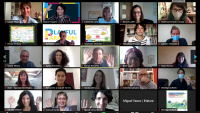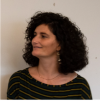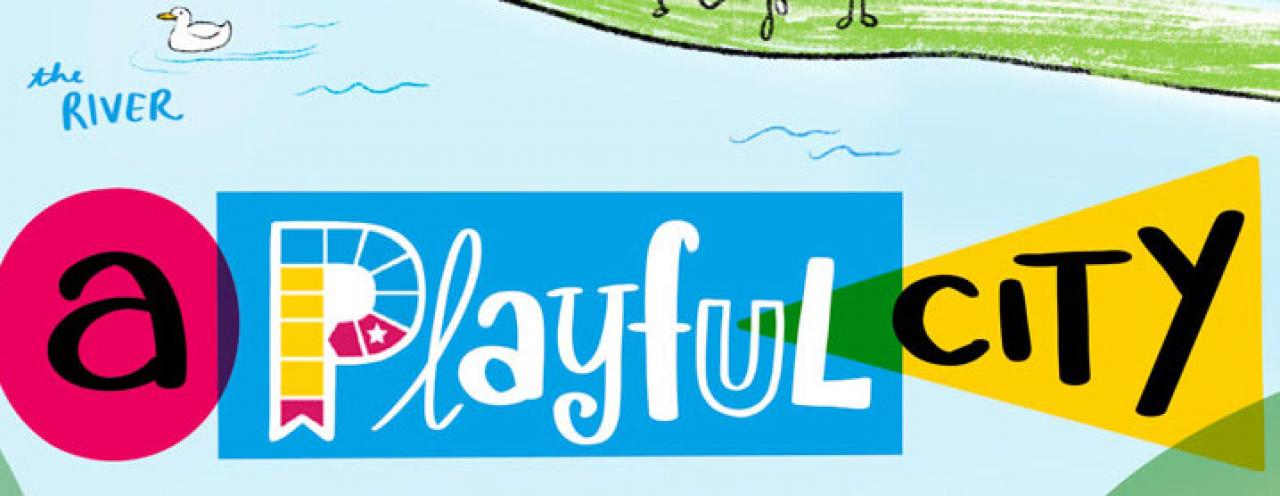
On 8th October 2020 a "Play participatory lab" has been organized during the European Week of Regions and Cities to involve policymakers and urban practitioners for co-designing measures and sharing insights dealing with the idea to launch the “European Capital of Play”.
Based on the experience of the Municipality of Udine, the Lead Partner of the Playful Paradigm URBACT Transfer Network and a contribution from Cork (Ireland) and the other partner cities of the Playful Paradigm, proposals and insights have been shared on the possibility to promote a Playful Policy approach aimed at transforming urban environments into great places to live.
Almost 70 participants joined the event conceived as an online experimental laboratory, so called Playful Paradigm to re-think cities, divided in two phases. The partner testimonials introduced the topic presenting their own experience with examples of playful activities for families, children, adults and the most marginalized people to boost healthy lifestyles and promote a sustainable placemaking. A participatory session using a gamification approach was opened to call participants to share ideas about the vision of a Playful City.
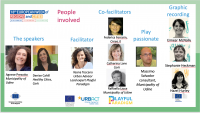
A long Story to build the “infrastructure” of Play in Udine
“Twenty years ago, Udine started to build an urban policy where play has been used to re-invent the city and tackle the challenges of urbanization, ageing population and pollution” said Agnese Presotto, project coordinator of Playful Paradigm and Head of the Environmental Department of the Municipality of Udine. Indeed, Udine has set up activities and infrastructures based on the philosophy of play which has been using as a cross cutting tool to foster health, inclusion, participation and sustainability.
“In Udine – continued Presotto - the first brick to build the infrastructure of PLAY was the Ludobus, a mobile toy-library used to promote play activities during summertime both in the suburbs and in the city centre. But infrastructures are not enough when you are willing to promote play”. An office of play was established by the Municipality of Udine uncharged to coordinate the Ludobus and Toy-library activities, promote the permanent “play education” for schools and other institutions, organise the numerous playful events and boost always novel play initiatives.
Udine has been labeled by URBACT Good Practice City for its experience dealing with play so far. In 2017 Udine decided to run a Transfer Network in order to give the possibility to other cities to benefit from the play approach.
“Open for play”, a motto for Cork to promote the Playful Paradigm
Cork is one of the partners of Playful Paradigm. It started to work with Udine inside the WHO - Healthy Cities Network, sharing the vision “to make the easy and enjoyable choice the healthy choice”. Cork joined the Playful Paradigm Transfer Network embracing the philosophy of the Playful approach to trigger the civic participation and transmit messages of health and inclusion.
“We were really excited to bring a culture of a playful city to Cork based on our experience in Udine” said Denise Cahill, Playful Paradigm Lead for Cork and Coordinator of Cork Healthy Cities. “We involved our local stakeholders by launching a Play Forum which was fundamental to work in a collaborative way. This approach helped us to bring Play in the various existing festivals in the City in order to motivate the people around play and disseminate the play philosophy”.
In adapting at local level the Good Practice of the Playful Paradigm, Cork took the opportunity to re-think city’s spaces as the area closed to the river so called “Marina” and the public spaces in front of the schools. “Through Playful Paradigm we tried developed the courage to be brave and trial new approaches. The playful paradigm supported us to remove cars from a key area in the city to open the space for play, pedestrians and cyclists. Rather then say <the road is closed we opted for the concept that the Street is Open for Play> and we adapted a place-making approach”.
The transfer process of Playful Paradigm in Cork was a big success. The city succeeded in hiring a dedicated Development Officer to support and follow all play activities. Many people have been engaged as “play leaders” to bring in the city’s neighborhoods the play initiatives. Play corners were opened in the Public Libraries and through the play leaders and play packs for the home Cork reached people in need also during the first lockdown offering playful activities for children, families and older people.
A common vision of a Playful City in Europe
As Udine and Cork also the other partners of Playful Paradigm, Esplugues de Llobregat, Larissa, Klaipeda, Novigrad, Viana do Castelo and Katowice, believe in the impact of play as a boosting tool to engage citizens and foster the social inclusion. They are keen in launching the idea of the “European Capital of Play” and for doing that, a “common charter/manifesto” of what means being a Playful City is needed. “Play for Green”, “Play for Inclusion” and “Play for placemaking” are the three pillars of this Manifesto, shared by the Playful Paradigm TN, where activities and values are described to become a Playful City.
“Play for Green” collects all the actions aimed at promoting the Culture of Sustainability and addresses Healthy and Sustainable lifestyles; “Play for Inclusion” focuses on the play solutions to include marginalized people and those in need; “Play for placemaking” identifies play participatory tools to support the urban planning activity and claims squares and streets open for play.
Considering those three themes of a Playful City, a Play Participatory Laboratory was launched during the workshop to call people to contribute and share the vision they have about an ideal playful city.
A Picture of a possible Playful City
For this full digital edition of the European Week of Regions and Cities we designed a play interactive session, based on a storytelling dice game. Indeed, after the first part of the event, where the Playful Paradigm Transfer Network was presented which a focus on Udine and Cork as partner’s testimonials, we launched the participatory session aimed at collecting insights dealing with a common Vision of a Playful City.
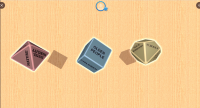
“Close your eyes and visualise your idea of a Playful City. What do you hear? What do you feel? What is visible? Who is visible? What are they doing?”
These questions drove participants in imagining a Playful City. A digital dice rolling invited attendants to share their vision of a playful city by creating a storytelling of their imagination using the categories appeared in the dice sides.
In the ideal common Playful city shared during the workshop, people could better connect each other: elderly people with children, migrants with locals. The relationship between parents and children are fostered by playing together. The public transportation and pedestrian and cyclable mobility are favored while cars are drastically reduced in the urban areas. Streets, squares and all urban public spaces are open for play. Public spaces are designed as multifunctional spaces and outdoor games. Physical activities and leisure are encouraged by the nature widely present in this ideal city. Children and Young people keep the city alive and the playful city is planned to break play out of the playground.
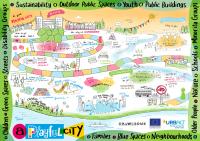
Don’t try to direct Play, just make the Space Playful
“Don’t try to direct Play, just make the Space Playful” said Denise Cahill summarizing the vision of a City shaped to favorite play. Indeed, what we learned from the Playful Paradigm experience so far is that people don’t need explanation about where and how playing. They need more public spaces car free and open for play for children, youth and adults.
People need colors, nature, safety and comfortable spaces where staying together for play, for sharing ideas and keeping alive the creativity we need to continue imagining a better future to live.
And a conclusion from the Committee of the Regions
Cllr. Kieran McCarthy based in Cork City and from the European Committee of the Regions provided the closing statement to wrap up of the meeting. He said “When I was in Portugal in 2019 and I met the Playful Paradigm partners I saw for myself the passion and the enthusiasm to promote play. And I thought the Committee of the Regions need to be connected into this. I suggested a presentation by the Playful Paradigm at the Week of the Regions and Cities in 2020. We shouldn’t take partnership for granted, it is a collaborative way of working which is constantly evolving. And the Playful Paradigm is a fantastic stepping stone for that.”
